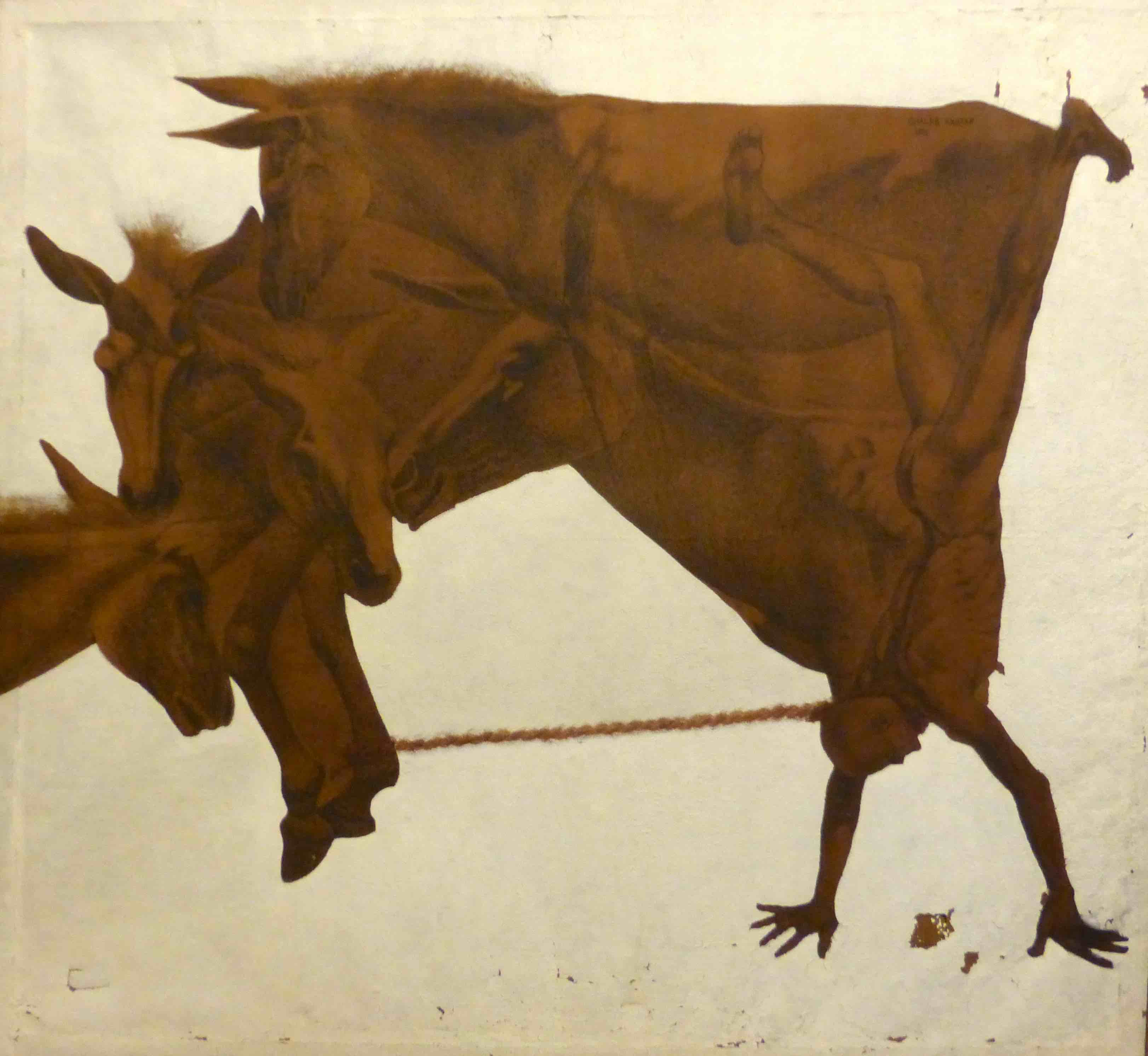
Ghaleb Khater (1922 – 2009) – A Voice of Dissent
Born and raised in Luxor, Ghaleb Khater graduated from the Fine Arts Faculty in Cairo in 1950. Ruled by a monarch, Egypt was still a protectorate of Britain.
Chronologically, Ghaleb Khater belongs to the Third Generation of Egyptian pioneer artists. However, the direction Khater took and the stand he upheld separate Khater from any artist groups or ‘ism’ categorization. Though his formative years are influenced by ancient Egyptian art and classic realism, Khater soon moved to a politically-charged neo-surrealist stage calling for social change to free Egypt. It began in the early 1970s following the 1967 War and revealed a breakthrough in aesthetics and concept. That final phase shows itself as a marker, during which Khater spent three restless decades in solace, pointing at social injustices, oppression and inequalities, and fighting for freedom.
Responding to the call of contemporaneity, Khater depicted highly controversial messages. As he called for a popular uprising ‘to make people’s lives more bearable, he attempted the difficult task of stating what he saw, not as a witness to history but as a committed marginal. Detached from the Egyptian cultural scene and contrary to other artists of his generation whose ‘revolutionary’ stage was only short-lived, Khater continued to create singular aesthetics, using minimalistic and monochromatic metaphors and symbols, to incite dialogue, if not, awaken the people.
Perceived as insulting to the regime and disregarded in both content and form, Khater was deliberately removed from the scene. He nevertheless pursued the difficult task of stating what he saw, not as a witness to history but as a committed Egyptian, Arab, and African marginal. Detached from the cultural scene, he imagined possibilities by rejecting the status quo by offering singular aesthetics. No one knows for whom these works were produced as Khater secluded himself, rarely exhibiting. Whether he feared retribution or felt his message would fall on deaf ears remains a mystery. Still, his genuine morality and the necessity of self-expression, not the impulse for aesthetic creation, encouraged his art.
He slipped under a shroud of anonymity, with his art purposely disregarded as politically motivated by the ironclad grip of a controlling state. His work was understood as a provocation. Khater died from Parkinson’s disease at the age of 87 in 2009.
To combat the institutionalization of forgetting, we bring Ghaleb Khater’s voice of dissent to light. The labeling of many contemporary artists as ‘revolutionary’ and ‘political,’ and the current commodification of the notion of revolution will appear out of place because Khater’s work, four decades before the Arab Spring, is explicitly ‘revolutionary,’ timeless, and universal.